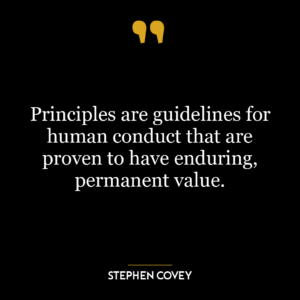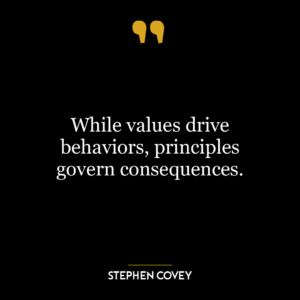This quote delves into the heart of what it means to be proactive, suggesting that it’s all about the capacity to control our immediate reactions or impulses in favor of our long-term values or principles. In other words, being proactive isn’t just about taking initiative or action, but about doing so in a way that aligns with our deeper beliefs and ambitions.
To understand this, consider the difference between reacting and responding. When we react, we act on impulse, often driven by emotions or immediate circumstances. However, when we respond, we take a moment to reflect and choose our action based on our values and long-term goals. This is the essence of proactivity according to the quote.
Applying this concept in today’s world is crucial in various aspects. In the realm of personal development, it can be a game-changer. For instance, if someone’s impulse is to procrastinate when they have a daunting task, they might choose to act on that impulse. However, if they’ve internalized the value of discipline and long-term success, they can subordinate that impulse to procrastinate and instead, choose to tackle the task head-on.
In a broader societal context, this idea is equally significant. In the face of challenges such as climate change or social inequality, the impulse might be to ignore the problem or to prioritize immediate comfort or profit. However, if we as a society can subordinate these impulses to the values of sustainability and justice, we can proactively work towards long-term solutions.
In summary, the essence of being proactive is about more than just taking action. It’s about consciously choosing actions that align with our values, even when they conflict with our immediate impulses. This principle can guide us towards personal growth and societal progress.






